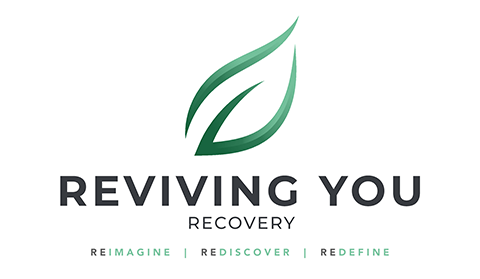How Important is Laughter in Drug and Alcohol Recovery

For millions of people, substance use disorder is something to recover from for the rest of your life. Most of us view that with mixed emotions. On the one hand, you can feel pride that you’re moving forward, leaving your past behind, and taking the steps to improve the rest of your life. On the other hand, most of us feel at least a little big like we need to laugh at our past selves, like we get to view our experiences through the lens of humor, and life laughter is a positive thing. That’s all very true.
You should get to laugh as part of recovery. In fact, it can be an important part of recovery and of rebuilding your life. Most importantly, laughter can be about anything, as long as you’re being respectful of the people around you.
So, why should you laugh? And how important is it in recovery? Let’s take a look.
Laughter Reduces Stress
There’s a lot of research showing that laughter actually helps to reduce stress. For example, it starts out as a physical reaction, tensing the heart, lungs, and muscles. It can feel uncontrolled and often is. But, it ignites the stress response and then relaxes it, decreasing blood pressure and forcing you to calm down. Many people have a noticeable feeling of relief when they laugh when stressed. That connection is also why some people laugh hysterically when under trauma or high stress.
That starts out with a physical reaction and goes into a hormonal reaction. It’s also the mechanism behind things like laughter therapy, where people are asked to attend comedy shows, to participate in laughter-inducing activities, and to laugh more as part of their mental health recovery. Of course, this isn’t a primary treatment but a complimentary one – but I’s a proven fact that laughter helps you to release stress by physically relaxing you and also by changing hormones your body is producing.
Laughter Makes You Feel Good
The same reaction that reduces stress helps you to just feel good. When you laugh you stop thinking and stressing, you stop worrying about things, you let go of things and you just enjoy the moment. Sometimes that’s completely outside of your control. Still, you’ll have a few moments of pure letting go and enjoying something. That disrupts stress hormones. It also releases hormones that make you feel good in the brain. This is part of the brain’s “reward circuit” where you’re essentially incentivized to participate in healthy social activities by your brain. If you do things that are good for you, your brain rewards you with feeling good. Those positive effects can be difficult to notice in the early days of recovery, especially if you’re suffering from emotional blunting or emotional process dysregulation as a result of substance abuse. Here, you literally feel less or feel things differently than you should because your brain is no longer properly processing emotions properly. You might not feel the joy of laughter or experience awe at seeing a sunset because your brain’s hormone processing system has been thrown off by drugs and alcohol. The good news is that this process is reversible and most people will recover from emotional blunting within about 3 months of being clean. For others it can take longer, but this is unusual.
However, when you’re healthy enough to experience it, laughter will make you feel good. You will get a positive boost to your mood just by laughing, because it does trigger your reward circuit.
Get Your Questions Answered Now

Laughter is a Form of Letting Go
If you can laugh at something, you’re accepting it. Laughter is a form of letting go in that it allows you to process, to move on, and to accept things as they are. You’re giving up control and working towards acceptance, recognizing that things can be ridiculous, and moving on. And, when you’re laughing as a form of community, you’re letting go of the fact that you’re an outsider, that you don’t belong, and that you don’t deserve to have fun.
Laughter means you’re accepting that you deserve to have fun, that you get to, and that you can enjoy yourself in whatever way fits your current situation. For many people, that’s a big step, and an important part of embracing treatment as a way to get your life back rather than to get clean of drugs and alcohol. That’s also why many treatment centers try to create situations where you can have fun, where you can laugh, and where you can let go.
Here, laughter also means you’re recovering your sense of self and your ego. Substance use disorders can be extremely bad for your self-image and your sense of self. As a result, we can end up being very protective of our self-image. When you can laugh and laugh at yourself, it’s a good sign that you are on the mend.
Laughter Builds Community and Connection
There are few things that are better for building a connection with others than laughing together. Getting to enjoy social situations and laugh together is an important part of being around others. There are studies showing that laughing together increased your ability to bond to your peers, meaning you feel more connected and more like part of the group. That doesn’t actually influence your behavior towards that group of peers. You won’t suddenly start liking them more or doing more things for them. Instead, you’ll feel like more of the group, you’ll feel more accepted, and you’ll feel more like you belong. That’s all important for being able to open up, to share in group, and to make the kinds of connections that allow you to get the support you need.
Of course, you can’t force laughing with a group. You can go to comedy clubs or watch funny shows. However, it’s not the same as laughing naturally, as part of conversation and a group. Instead, you’ll just have to socialize together, wait for laughter to naturally occur, and embrace it.
Many rehab centers put social groups together and have counselors tell jokes, encourage fun, and encourage laughter in several ways. This is often an important part of you getting to bond with the group and to feel connected to the group – even if you’re not getting anything else out of the session.
Moving Forward
Laughter is an important part of recovery. It helps with social bonding, it can encourage getting to relax, it makes you feel good, it makes you feel like you belong. All of that is important for your wellbeing and for your getting to feel good. At the same time, you can’t force it. Laughter has to happen naturally, as part of what you’re doing, and you can’t decide whether to laugh or make people laugh. Of course, you can watch comedies, do fun things, and hope for the best – but trying too hard is probably going to do more harm than not trying at all. Plus, if you’re watching TV, keep in mind that a lot of humor on TV is based around alcohol, so you should pick your show with care.
What else? Laughter should be natural. Just be social, be open, and be respectful of the people around you. Everything else will happen on its own.
We Accept Most Insurances
We are in network with:









We know insurance coverage can be a source of uncertainty for people. We make sure you have all the information necessary. The great news is health insurance can potentially cover the total treatment costs. If you don't have insurance, we offer cash payment options for our treatment programs and are committed to working with clients regardless of financial situations.
